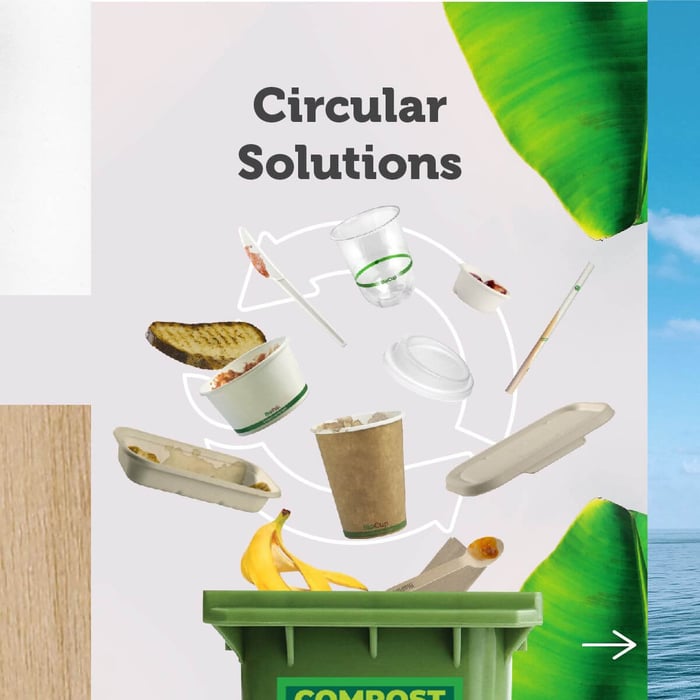Sustainable food packaging has become a crucial aspect of the circular economy paradigm, as businesses strive to minimise waste and adopt sustainable practices. In recent times, the vulnerability and challenges posed by disrupted global supply chains, highlighted by the pandemic, have further fueled the adoption of circular business models. To become a truly circular business, organisations need to focus on five key areas that not only contribute to sustainability but also yield benefits such as cost reduction, increased customer satisfaction, risk mitigation, profit growth, and enhanced resilience.
The first key area is responsible design. Businesses must strive to create products that are designed to minimise waste and pollution. This involves finding the perfect balance between sustainability and practicality. By incorporating biodegradable packaging materials, companies can significantly reduce the environmental impact of their products. Biodegradable packaging refers to materials that can naturally break down and decompose into the environment without leaving harmful residues. This type of packaging helps to minimise waste and pollution, making it an essential component of a circular business model.
The second key area is responsible sourcing and marketplace. Businesses should prioritise sourcing materials sustainably. This means being aware of the origins of the materials they use and ensuring that they are obtained from environmentally conscious suppliers. By doing so, companies can create value in their products and services while also promoting sustainable practices throughout the supply chain.
Responsible production is the third key area that contributes to a circular business. By adopting a "produce what you need" approach, organisations can minimise waste generation. Additionally, focusing on sustainable production methods ensures that the products themselves do not harm the environment during their lifecycle. This includes using energy-efficient manufacturing processes, reducing greenhouse gas emissions, and incorporating sustainable food packaging materials.
The fourth key area is responsible consumption. It is essential for businesses to encourage responsible consumer behavior. This involves educating customers about the importance of purchasing only what they need and making informed choices. By promoting the benefits of biodegradable packaging, businesses can highlight their commitment to sustainability and inspire consumers to make eco-friendly decisions.
Lastly, resource recovery and reuse form the fifth key area of a circular business model. Businesses must provide appropriate end-of-life disposal options for their products. For example, if a company supplies compostable cups, they should ensure that customers have access to organics bins or provide information on where to find them. It is equally important for businesses to actively promote the use of recovered resources. Simply composting or recycling is not enough; there must be a demand for the resulting compost or recycled materials. This emphasises the need for circularity to start within the business itself.
Here at Planet Friendly Packaging, we offer a range of sustainable food packaging options, including paper bags, single wall hot coffee cups, and biocane containers. Planet Friendly Packaging is committed to providing businesses with environmentally friendly alternatives that align with the principles of the circular economy. Our products not only contribute to waste reduction but also offer businesses an opportunity to showcase their commitment to sustainability.
In conclusion, the transition to a circular business model requires organisations to address key areas such as responsible design, sourcing, production, consumption, and resource recovery. Incorporating biodegradable packaging materials is a vital step toward achieving sustainability and minimising waste. Businesses like ours and BioPak play a crucial role in providing eco-friendly packaging solutions that enable businesses to align with the principles of the circular economy. By embracing these principles and making conscious choices, businesses can pave the way for a more sustainable and resilient future.





